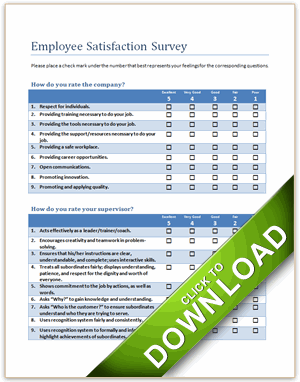Understanding Company Satisfaction Ratings: A Guide for Businesses and Customers
In today’s competitive market, understanding company satisfaction ratings has become essential for businesses and consumers alike. These ratings provide valuable insights into how well a company is meeting its customers’ expectations, and they can directly impact the company’s reputation, sales, and growth.
Whether you’re a business owner or a customer, learning how satisfaction ratings work, what factors influence them, and how to improve them can help you make more informed decisions. This guide breaks down everything you need to know about company satisfaction ratings, from their significance to how they are calculated and used.
%3F-2.png?width=624&name=What%20Is%20Customer%20Satisfaction%20Score%20(CSAT)%3F-2.png)
What Are Company Satisfaction Ratings?
Company satisfaction ratings are metrics that measure how satisfied customers are with a company’s products, services, or overall experience. These ratings can be gathered through surveys, feedback forms, or online reviews and are often represented as numerical scores or percentage ratings.
Most businesses use customer satisfaction scores (CSAT) to gauge their performance. A higher score indicates that customers are happy with their experience, while a lower score suggests room for improvement.
Why Are Company Satisfaction Ratings Important?
1. Customer Retention
Satisfied customers are more likely to return to a business and make repeat purchases. Positive satisfaction ratings often correlate with increased customer loyalty, which is crucial for long-term success.
2. Business Growth
Good satisfaction ratings can attract new customers and improve a company’s reputation. When people see that a company consistently satisfies its customers, they are more inclined to trust it and consider purchasing its products or services.
3. Product and Service Improvement
Feedback gathered from satisfaction ratings can pinpoint areas of improvement. Companies can use this information to refine their products, services, and customer experience, leading to better outcomes for both customers and the business.
4. Competitive Edge
In a saturated market, businesses with higher satisfaction ratings stand out from competitors. Customers are more likely to choose a company with positive reviews and ratings over one with negative feedback.
How Are Company Satisfaction Ratings Measured?
Company satisfaction ratings are typically measured through surveys and feedback systems. There are various ways businesses collect this information:
-
Customer Satisfaction Surveys: Companies often send out surveys to customers after they have made a purchase or interacted with the business. These surveys typically ask customers to rate their experience on a scale (e.g., 1-5 stars or a scale from “very dissatisfied” to “very satisfied”).
-
Online Reviews: Many companies rely on online platforms like Google, Yelp, or social media to gauge satisfaction. Customers can leave reviews that contribute to a company’s overall rating.
-
Net Promoter Score (NPS): NPS is a common metric used to measure customer loyalty and satisfaction. Customers are asked how likely they are to recommend the company to others on a scale of 0 to 10.
Key Factors That Influence Company Satisfaction Ratings
Several factors can affect a company’s satisfaction ratings, including:
-
Product Quality: If the products or services offered by a company consistently meet or exceed customer expectations, the company is likely to receive higher ratings.
-
Customer Service: A friendly, responsive, and helpful customer service team can significantly boost satisfaction scores. Customers value businesses that make an effort to resolve issues promptly and efficiently.
-
Ease of Use: Whether it’s a website, mobile app, or physical store, if a business provides a seamless and easy-to-navigate experience, customers are more likely to rate it highly.
-
Price: The perceived value of a product or service can also impact satisfaction ratings. Customers are more likely to leave positive feedback when they feel they have received good value for their money.
-
Delivery and Fulfillment: For e-commerce businesses, the speed and reliability of delivery are critical factors. Delays, incorrect orders, or poor packaging can lead to lower satisfaction ratings.
How to Improve Company Satisfaction Ratings
If your business is struggling with low satisfaction ratings, there are several strategies you can employ to improve your score:
1. Listen to Customer Feedback
Pay attention to what your customers are saying. Use surveys, reviews, and social media to gather feedback on what they like and what needs improvement. Act on this information to make necessary changes.
2. Train Your Customer Service Team
Your customer service team plays a crucial role in satisfaction ratings. Ensure that they are well-trained to handle customer inquiries and complaints professionally and efficiently. A positive interaction with customer service can significantly improve a customer’s overall perception of your business.
3. Enhance Product Quality
Invest in product quality and ensure that your offerings meet the expectations of your customers. Regularly update and improve your products to stay competitive in the market.
4. Improve the Customer Experience
Make the buying process easy and enjoyable. From user-friendly websites to fast delivery and easy returns, small improvements in the customer experience can lead to significant improvements in satisfaction ratings.
5. Offer Loyalty Programs
Reward loyal customers with special offers, discounts, or early access to new products. This can foster goodwill and encourage positive reviews and higher ratings.
Measuring the Impact of Company Satisfaction Ratings
Once you’ve taken steps to improve your ratings, it’s essential to track the results. Use the following metrics to measure the effectiveness of your efforts:
-
Customer Retention Rate: A higher satisfaction rating typically leads to increased customer retention. Track how many customers return to make additional purchases.
-
Sales Growth: Improved ratings often translate into higher sales as customers become more confident in your business.
-
Brand Reputation: Monitor your company’s reputation online through reviews, social media, and customer feedback.

Frequently Asked Questions (FAQs)
1. What is the ideal customer satisfaction score?
The ideal score varies by industry, but a score of 80% or above is generally considered excellent. This indicates that most of your customers are happy with your product or service.
2. How often should companies collect satisfaction ratings?
It’s best to collect satisfaction ratings regularly, especially after major customer interactions like purchases, service calls, or product deliveries. Continuous feedback allows you to address issues promptly.
3. Can a company’s satisfaction rating be too high?
While high satisfaction ratings are typically a good sign, companies should ensure they continue to innovate and improve. A company with a perfect score might overlook areas for improvement that can help them stay ahead of the competition.
4. How do satisfaction ratings affect employee morale?
Employees are often motivated by positive feedback. A company with high satisfaction ratings may foster a positive internal culture, where employees feel proud of their work and motivated to maintain high standards.
Conclusion
Company satisfaction ratings are more than just numbers; they are a reflection of your business’s ability to meet or exceed customer expectations. By understanding what influences these ratings, actively seeking feedback, and taking steps to improve, you can increase customer loyalty, grow your brand, and ultimately achieve greater business success.
Investing in customer satisfaction not only improves your ratings but also sets your business apart from competitors. Keep listening to your customers, make necessary changes, and watch your satisfaction ratings soar!
For more insights on improving your business performance, check out our articles on effective customer service and how to boost sales through customer loyalty.



